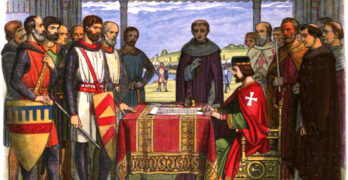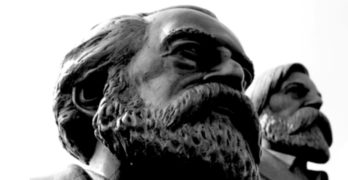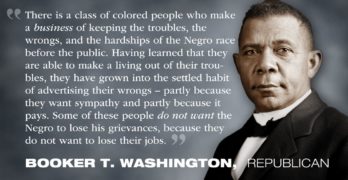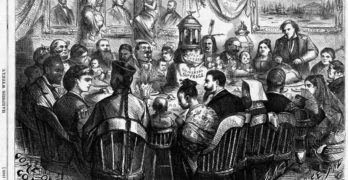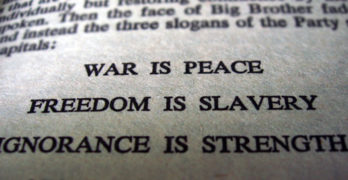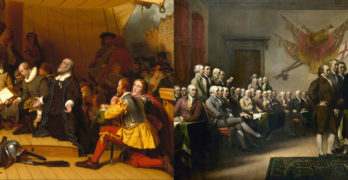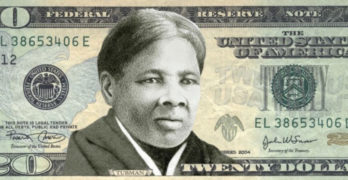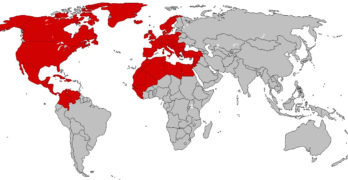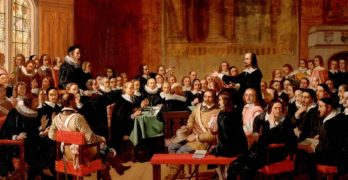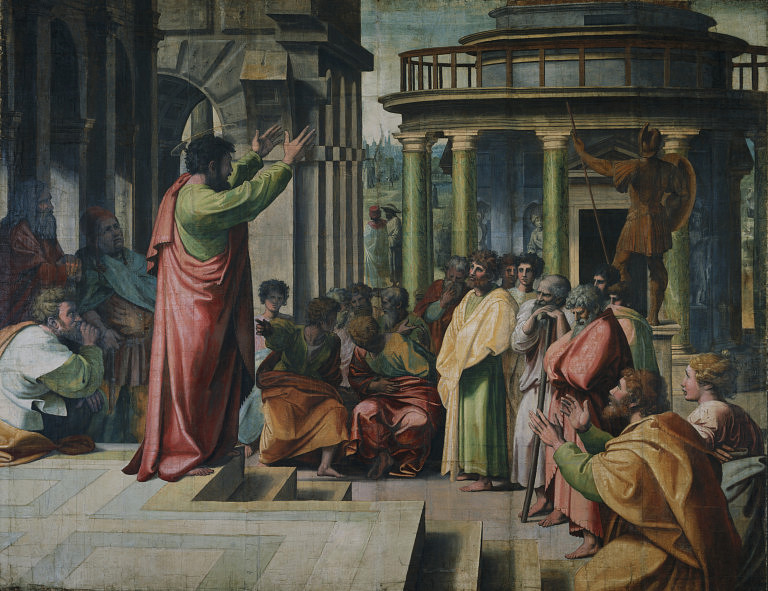 In the previous post, we talked about how the Jezebel witchcraft Spirit can affect the whole family through the example of Peter. We mentioned that Peter put his faith in the Lord Jesus when he was around 18 years of age, but he had all these problems and confusions because of lack of discipleship as a young believer. Peter says,
In the previous post, we talked about how the Jezebel witchcraft Spirit can affect the whole family through the example of Peter. We mentioned that Peter put his faith in the Lord Jesus when he was around 18 years of age, but he had all these problems and confusions because of lack of discipleship as a young believer. Peter says,
The Holy Spirit convicted me that I had to repent and wholeheartedly and completely surrender my life to the Lord. It was around 2001 that I experienced life-changing personal encounter with Jesus Christ through the power of the Holy Spirit that made a lasting impression on me. I then experienced a deep longing to serve Him and for a more intimate relationship with Him, and in His goodness, the Lord began to reveal Himself to me in His Word and to introduce me to other Bible teachers that have enriched my spiritual, personal and private prayer life.
Certainly Peter had a life transforming encounter with Jesus Christ, but he didn’t seem to have victory especially in the area of finance and he could find no natural or logical reason why he was frustrated. As we discovered, Peter had descended from many generations of idol worshipers which according to Exodus 20:3-5, means a curse down to the third and fourth generations.
The actual experience of Peter’s encounter with the Holy Spirit however, was not the end of his conflict. Why? Because a person who has made a conscious, unreserved commitment to Satan is still regarded by him as his property. Satan will seek continually to re-establish his control, using every kind of demon under his command.
The spiritual struggle for deliverance is often very intense for those who have participated in any kind of satanic rituals. As I mentioned in my book,
We Africans are very defensive about our culture, traditions, and superstitions, which is completely understandable. But adhering to that culture when we’ve been born again causes great conflict. We still suffer from the influence of witchcraft, ancestral worship, and other spiritual strongholds, which has been going on for some time since the history of Christianity in Africa.
It is worth examining that despite the origins of revival in Uganda (East Africa) in the nineteenth century, many Christian leaders from Buganda, which is the largest ethnic group, resented the revival because they felt this move of the Holy Spirit attacked their deeply held kiganda traditions and practices.
The born-again Christians denounced the continuance of traditional practices by Christians and accused the already established Anglican Church of compromising. These new born-again believers declined to have anything to do with rituals connected with the birth of twins or the last funeral rites, all of which the born-again believers felt to be immoral practices.
Once a person has entered the kingdom of God and has wholeheartedly accepted the lordship of Christ, no other culture or tradition may legitimately lay claim to our lives. We have patterns of sin that go back thousands of years and generation after generation of repeating these patterns.
The revival that took place should have broken up these patterns, but most believers combined their traditions with the Word of God. It’s impossible to combine the traditions and culture of any society with the Bible. They will always be in conflict with one another.
Discipleship in a Young Believer
Throughout the New Testament, we are commanded to produce committed followers and disciples, not merely converts. It takes real spiritual fatherhood like that exemplified by the apostle Paul to form real committed Christians. The question is: What is a Disciple and how do we become Disciples?
A disciple is a learner who follows His Master everywhere He goes. His goal is to learn and keep on learning until he resembles the Master. The goal of the disciple should be to know Jesus more intimately. When the seventy disciples had come back from preaching the gospel, healing the sick, and casting out demons, they were filled with joy because even the demons were subject to them.
Jesus told them, “Nevertheless do not rejoice in this, that the spirits are subject to you, but rather rejoice because your names are written in heaven” (Luke 10:20). In other words, don’t rejoice in successful service, but rejoice that you know the Lord intimately. The passion for winning souls and making disciples springs from our relationship with God.
Jesus’ definition of becoming a disciple requires absolute surrender to Him alone. Because Jesus Christ demands obedience to His Word, He calls men to follow Him not as just a teacher or a pattern of the good life, but as Lord and God—the Christ, the Son of the living God. In describing what a disciple means, He said,
If anyone comes to Me and does not hate his [own] father and mother [in the sense of indifference to or relative disregard for them in comparison with his attitude toward God] and [likewise] his wife and children and brothers and sisters—[yes] and even his own life also—he cannot be My disciple…. So then, any of you who does not forsake (renounce, surrender claim to, give up, say good-bye to) all that he has cannot be My disciple. (Luke 14:26, 33 AMP)
The passage makes a pointed contrast between two kinds of people: the great multitudes who were going along with Jesus and the single individual who comes after Him. We are sometimes satisfied with great multitudes who go along with Jesus, but true Christianity should focus primarily on each individual who comes after Jesus.
That’s why the apostles were concerned that people should become disciples; they were not interested in our modern methods of preaching. They realized that disciple making takes time and so Paul would stay in a place for a considerable period of time to make sure that the believers were established.
In Ephesus he taught about the kingdom of God every afternoon from 12 until 4 o’clock for two years in order that young converts might learn and new people would come to a saving knowledge of Jesus Christ. In fact those who came to faith were commonly known as disciples or followers of the way. It was perseverance on the journey that mattered, not a one-off decision that has little effect on daily life.
Repentance is an ongoing, daily requirement in the life of every disciple of Jesus Christ. The call of discipleship sets the Christian in the middle of daily temptations against sin and the enemy. Every day and every hour we encounter new temptations, and we must be called to suffer, carry the cross, and follow Christ, denying ourselves.
We are to produce not fellow travelers but committed followers of Jesus Christ. If you know you cannot follow up your converts, you had better go back in the secret place and talk to the Lord to give you a discipleship strategy. Jesus Christ emphasized this when He asked the Apostle Peter three times if he loved Him, he was to take care and feed His lambs. (See John 21: 15-17)
Peter indeed obeyed this command by preaching his first sermon after being filled and empowered by the Holy Spirit. Peter knew that unbelief was the first sin that man committed. Therefore it had to be the first sin which the Holy Spirit convicted the 3,000 on the Day of Pentecost. Peter said,
Therefore let all the house of Israel know assuredly that God has made this Jesus, whom you crucified, both Lord and Christ.’ Now when they heard this, they were cut to the heart, and said to Peter and the rest of the apostles, ‘Men and brethren, what shall we do?’ (Acts 2:36–37)
He then called his listeners to repentance:
Repent (change your views and purpose to accept the will of God in your inner selves instead of rejecting it) and be baptized, every one of you, in the name of Jesus Christ for the forgiveness of and release from your sins; and you shall receive the gift of the Holy Spirit. (Acts 2:38)
The sequence is to believe, repent, be baptized and receive the gift of the Holy Spirit. Why would Peter include the baptism of the Holy Spirit? It is quite possible to have some of the Spirit’s presence and work in the heart and yet come short of that special fullness and work known in the Bible as the baptism or filling with the Holy Spirit. It is only the Holy Spirit who convicts the world of the sin of unbelief, the righteousness of Jesus, and of a future judgment to come. (See John 16:9–11)
Without the moving of the Holy Spirit in the hearts of the people, we would be religious and deny the power that can make us godly. (See 2 Timothy 3:1-5) Religion apart from the moving of the Holy Spirit can be very dangerous because it keeps us in a false sense of security and indifference without considering the destiny of our souls. We have an example given by Rees Howells during the Welsh Revival:
The Revival proved what the Holy Ghost could do through a company of believers, who were of one spirit and of one mind as on the day of Pentecost……The one aim was the saving of souls. The Saviour said there is joy among the angels over one sinner that repents, and they could say there was joy in the church over converts.
The bells of the heaven rang every time, and there was a shout of victory in the camp. Under the influence of the Spirit there was an irresistible power. The feeblest ones were often clothed with a majesty that was indescribable, and their words were with unction, as they showed how the Saviour was “slain for our offences and raised again for our justification.
Whole congregations were melted, and people were crying out in agony of soul, “What must we do to be saved?” Multitudes experienced the power of the Blood of Jesus Christ to cleanse from all sin. But the real problem arose as the revival proceeded and thousands were added to the churches. There were more children born than there were nurses to tend them.
The establishing or discipling of the converts became the greatest need, which if not met would be the most dangerous weakness of the Revival. As enthusiasm abated, there were bound to be many who had depended more on feelings, and not yet learned to have their faith solidly based on the Word of God. The devil took advantage of this, some became cold and indifferent and the spiritual conflict began.
So in Peter’s situation, which affects most new believers, no one took the time to explain to him that individual sinfulness in this case, witchcraft can have an effect on the whole family or nation. The best example of this is found in Joshua 7. After the fall of Jericho, Joshua commanded that all living things should be killed and all the treasures should be taken into the treasury of the Lord’s house.
A man named Achan took some of the treasures for himself and hid them. We are told that as a result of his action the Israelites were defeated at Ai. Joshua and the leaders spent a whole day pleading with the Lord and seeking to discover the reason for the curse.
Israel has sinned; they have transgressed My covenant which I commanded them. They have taken some of the things devoted [for destruction]; they have stolen, and lied, and put them among their own baggage. (Joshua 7:11)
Now it’s easy to baulk at this incident and ask, why blame the Israelites? It was Achan who sinned, not the whole of Israel. Unfortunately, the sin had tainted the whole of Israel and therefore the whole nation had to pay for the sin of one man. Achan’s personal sin had an effect on the whole of Israel as well as himself and his own family.
In the Old Testament we find the leaders representing the whole group before God. Time and time again the prophets came before God to plead before Him to forgive their iniquity.
In the New Testament, Paul is also aware that the sin of each individual taints the whole. In 1 Corinthians 5 he dealing with the report that a man is actually sleeping with his father’s wife. As if that wasn’t bad enough the church had colluded in this sin by not expelling him and Paul’s judgement causes a severe shock:
You are to deliver this man over to Satan for physical discipline [to destroy carnal lusts which prompted him to incest that his spirit may yet be saved in the day of the Lord Jesus. (1 Corinthians 5:5) Paul then explains why it is dangerous to turn a blind eye to sin within the body:
Do you not know that a little leaven leavens the whole lump? Therefore purge out the old leaven, that you may be a new lump, since you truly are unleavened. For indeed Christ, our Passover was sacrificed for us. Therefore let us keep the feast, not with old leaven, nor with the leaven of malice and wickedness, but with the unleavened bread of sincerity and truth. (Verses 6-8)
The individual sin cannot be seen in isolation from the family or nation and therefore, like yeast in the dough, it can spread throughout with grave consequences for the whole family or society. That’s why it’s important to stand in the gap and plead to God for the release of the family from the consequences of sin or condemnation and to ask God for mercy.
Peter had to be taught that its power of the Holy Spirit and the cross that nullifies witchcraft. Peter needed the help of committed disciples of Jesus Christ to stand with him so that he could learn to resist every pressure by continually affirming and confessing the Scriptures that guarantee deliverance and victory. The Christian life is a conflict and warfare and the quicker we find it out the better.
In this, Jesus is our example. When devil tempted Him in the wilderness, He countered the temptation with one all sufficient response: It is written…it also written…. (See Luke 4:1-12) Then Jesus went back full of and under the power of the Holy Spirit into Galilee, and the fame of Him spread through the whole region round about. (Verse 13-14)
This experience of the Holy Spirit was foretold by John, promised by the Father and experienced at Pentecost. (See Acts 1:8) I’m sure you’ve noticed that the vast change that took place in the apostles after this experience. Before, they had been timid and powerless men. Afterwards, they did receive the power that Christ spoke about. They healed the sick, cast out demons, and raised the dead. The same men who had hidden themselves at the crucifixion went on after this experience and changed the world.
But someone might ask, I have been baptized in the Holy Spirit. I have obeyed the Lord in all these matters of repentance and faith, why am I still frustrated in many areas of my life? The answer is we must recognize that there is a higher level of blessing than what we can see with our own eyes—the material. For example, when Moses turned his back on the wealth of Egypt, the writer of Hebrews tells us that:
He preferred to share the oppression [suffer the hardships] and bear the shame of the people of God rather than to have the fleeting enjoyment of a sinful life. He considered the contempt and abuse and shame [borne for] the Christ (the Messiah Who was to come) to be greater wealth than all the treasures of Egypt, for he looked forward and away to the reward (recompense). (Hebrews 11:24-26)
The motivation to believe, repent and be baptized in the Holy Spirit should not be to acquire selfish material wealth. In his book on Prayer, Andrew Murray teaches us that:
We need to realize that in our relationship to God, who has created and redeemed us; our first posture ought to be that of subjection. The surrender to His supremacy, His glory, His will, His pleasure, ought to be the first and uppermost thought in our mind. The question is not how we are to obtain and enjoy His favor or blessing, for the motivation here may still be self.
But rather what does God rightfully claim of us—and is infinitely and unspeakably worthy of: that His glory and pleasure should be our one object. Service and obedience were the thoughts uppermost in the mind of the Son when He dwelt on earth. Service and obedience must also be the chief objects of our desire and aim.
The motivation of the disciple should be love for Jesus and His people which enables us to do God’s will. Once our motives are tested and purified and our faith has stood the test, the Lord will release whatever blessing and abundance that He can trust us to use for His glory and for preaching His gospel wherever, and whomever He decides to send us to.
Image credit: Paul delivering the Areopagus sermon in Athens, by Raphael, 1515. Public Domain









